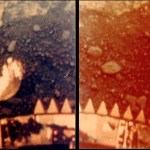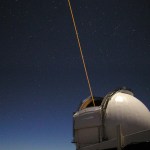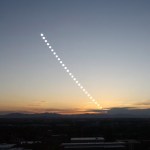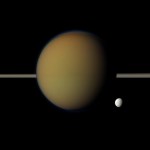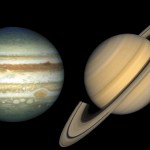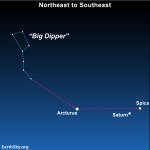atmosphere
"Being told about the effects of climate change is an appeal to our reason and to our desire to bring about change. But to see that Africans are the hardest hit by climate change, even though they generate almost no greenhouse gas, is a glaring injustice, which also triggers anger and outrage over those who seek to ignore it." -Sigmar Gabriel
With all of the scientific issues subject to politicization in this world, there's arguably none that raises such strong emotions as the issue of global warming and climate change. This is the final installment of a three-part series on how one could…
"We make the world we live in and shape our own environment." -Orison Swett Marden
If you had never heard of global warming before, how would you figure out whether it's real or not? And if it is real, how would you figure out what humanity's role in it is? To answer this, I've decided to do a three-part series on how you'd go about figuring this out, putting aside all politics, economics, opinion and any other non-scientific factors. If you missed part 1, you can check it out here; today we're going to build on that and talk about what determines the temperature of a planet with an…
"But certainly the laser proved to be what I realized it was going to be. At that moment in my life I was too ignorant in business law to be able to do it right, and if I did it over again probably the same damn thing would happen." -Gordon Gould, inventor of the laser
You're used to the iconic image of an observatory's dome surrounded by a dark sky. From within, a telescope peers up at the heavens. And with a huge amount of light-gathering power that dwarfs a fully dilated human eye, we can use this tremendous tool to peek into the dark depths of the Universe.
Image credit: Fort Lewis…
"It does no harm to the romance of the sunset to know a little bit about it." -Carl Sagan
I would argue the exact opposite, in fact: the beauty of a sunset, in all of its varieties and variations, is only enhanced the more you know about it.
Image credit: Dan Schroeder, via Picasa.
The next time you watch the Sun descend through the sky, towards the horizon, you might marvel at how the Sun remains the same size all the way down. At just slightly over half-a-degree, the Sun appears to drop at a constant rate throughout the afternoon and into early evening.
But there are some small changes…
"For most of the history of our species we were helpless to understand how nature works. We took every storm, drought, illness and comet personally. We created myths and spirits in an attempt to explain the patterns of nature." -Ann Druyan
Here on Earth, we are well aware of how devastating storms can be. From hurricanes to flash floods, an unpredictable change in weather can turn a serene setting into a catastrophe in no time at all. The clouds that fill the skies can often portend what type of weather is coming, and to me, the most impressive and fearsome of all is the rare and remarkable…
"Don't go around saying the world owes you a living. The world owes you nothing. It was here first." -Mark Twain
So, you've been around a while, seen all sorts of things, and learned an awful lot about the world, solar system and Universe that we live in. But how well do you know it, really?
Image credit: NASA / Lunar and Planetary Laboratory.
To scale and in order, these are the eight planets you know so well. There are the four rocky worlds of our inner solar system: Mercury, Venus, Earth, and Mars, and the four gas giants that dominate the outer solar system: Jupiter, Saturn, Uranus, and…
"Everyone is a moon, and has a dark side which he never shows to anybody." -Mark Twain
Back before the telescope was invented, Saturn was known as the Old Man of the Skies. The slowest-moving of the naked-eye planets, it's the only one that would reliably be in nearly the same location, year after year. You can find it all summer, after sunset, by following the "arc" of the handle of the big dipper all the way until you run into the brightest northern-hemisphere star, Arcturus, and then speeding on to the very bright Spica. Saturn is right next door.
Image credit: EarthSky.org.
But…
How does a suction cup work? It is all about the atmosphere. Here is a demo. Take some type of "suction cup" device. In this case, I used a toy dart. Stick it to something smooth and lift it up. Like this:
What lifts up the metal block? The atmosphere. Diagram time:
But this isn't a very realistic diagram. Actually, the suction cup would be pushing down on the block because the force from the atmosphere would be too large to balance with the weight. Let me put some numbers in here. Suppose this is an aluminum block - I just going to pretend it is 4cm on a side (and a cube). In…
Check out this thing.
That is where the guy (Jem Stansfield of BBC's Bang Goes the Theory) shows how he built this thing. Here is part 2 where he uses it to climb a building.
Here are some questions:
Why does it not matter how powerful the vacuum is?
How does a vacuum cleaner work anyway?
How does the vacuum cleaner work?
I know this is not HowStuffWorks.com, but I guess I should show some stuff. The cool thing about a vacuum cleaner (think shop vac so that I don't have to deal with the brushes) is that it is just one thing - a fan. The fan essentially moves air out of the vacuum part of…
tags: Sonic Boom Meets Sun Dog, amazing science, sonic boom, Atlas V, rocket launch, amazing, beautiful, atmosphere, physics, astronomy, streaming video
This amateur video is absolutely amazing: recording the precise moment when a rocket goes supersonic, which coincides with the moment it passes through a layer of ice crystals in the atmosphere, creating a rippled effect that is just astonishing to see.
Solar Dynamics Observatory Launch, Feb 11, 2010: A sun dog is a prismatic bright spot in the sky caused by sun shining through ice crystals. The Atlas V rocket exceeded the speed of sound in…
Sure, astronomers might not call it a planet anymore, but every schoolchild knows how badass Pluto really is. It's got a giant moon, Charon, and two smaller ones, Hydra and Nix.
In addition to being colder than ice with an average temperature of 44 Kelvin (that's colder than liquid nitrogen), I'm here to bring you the news that despite the fact that it's so cold and so far from the Sun, Pluto has been melting!
Since its discovery by Clyde Tombaugh in 1930, astronomers have been fascinated with Pluto, making very careful observations of it, trying to learn more about this bizarre, icy sphere…
People love to speculate that Mars was once a great place for life to form, and claim that there is plenty of evidence that there used to be oceans and rivers there. But this isn't true. People used to claim there were big Canal-like features on Mars, and used this as evidence that Mars was very wet.
It was later realized that these weren't canals, but rather geological features caused by impact craters from astroids. But more recently, people have been claiming that images like the one above are examples of dried-up riverbeds.
But this turns out not to be the case. When we take a closer…

